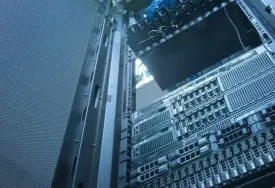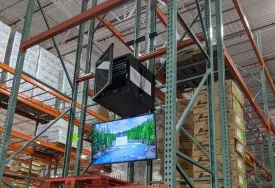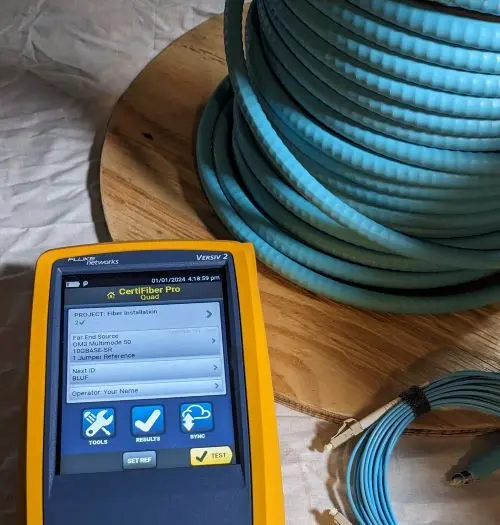Michigan, USA
data center

In today's digital age, the term "data center" has become synonymous with the backbone of modern computing. These vast facilities are integral to the storage, management, and dissemination of data across the globe, serving as the nerve center for companies, governments, and individuals alike. As businesses increasingly rely on cloud computing and big data analytics, the demand for robust and efficient data centers continues to grow. Typically, a data center houses critical IT equipment such as servers, storage systems, and network infrastructure, all working in concert to ensure seamless access to information. The importance of data centers cannot be overstated, as they not only facilitate the daily operations of countless organizations but also support the digital experiences we have come to depend on in both our personal and professional lives.
The evolution of data centers reflects the rapid advancements in technology and the ever-changing needs of the digital landscape. Traditionally, data centers were on-premises facilities owned and operated by individual organizations. However, the rise of cloud service providers like Amazon Web Services, Microsoft Azure, and Google Cloud has introduced a shift towards off-premises, shared data centers that offer scalable solutions with cost efficiencies. This transformation has made data centers more accessible to businesses of all sizes, enabling them to leverage state-of-the-art technology without investing heavily in physical infrastructure. Furthermore, advancements in cooling techniques, energy efficiency, and automation within data centers have not only reduced operational costs but also contributed to more sustainable practices in the tech industry.
In the realm of cybersecurity, data centers play a pivotal role in safeguarding sensitive information. With the increasing frequency of cyber threats, data centers must implement rigorous security measures to protect the integrity and confidentiality of the data they store. From biometric access controls to advanced firewalls and encryption protocols, the security infrastructure of a data center is as sophisticated as its technological capabilities. Moreover, data centers are designed with redundancy and disaster recovery plans to ensure uninterrupted service, even in the face of natural calamities or technical failures. As digital transformation continues to accelerate across industries, the role of data centers in providing secure, reliable, and efficient data management solutions will be more vital than ever, making them an indispensable asset in the digital ecosystem.
We bring a high level of expertise to every project, backed by years of industry experience. Please visit our work to see detailed examples of our completed projects and the high-quality standards we uphold.

Our team stays up-to-date with the latest network standards and installation practices, ensuring that your systems are cutting-edge and compliant. This means we use the most current technologies and methods to deliver reliable, efficient, and future-proof networking solutions.

We use only the highest quality copper, fiber, and AV products, ensuring superior performance and durability in all our installations. Each product is certified to meet or exceed manufacturers' specifications, guaranteeing optimal reliability and efficiency for your network.

Our data cabling projects are performed professionally, reliably, and with full accountability, giving you peace of mind and confidence in our services.
Upgraded a global financial services company’s WAN to an AT&T rate adjustable 100Mbps interstate-rated switched Ethernet circuit. Install flexible conduit from the parking garage telco room to the building interior. Pull 300’ CAT 5E CMP cable from AT&T demarc using the building’s existing conduit over the lobby and up to the tenant’s 3rd floor MDF...
Complete build-out of the cable plant for a national fine dining restaurant. Install flame-retardant telecom backboards in the electrical room. Install an 11U wall-mount open swing rack on the backboard. Ground rack to building UFER with #6 AWG. Core drill into the masonry block wall and install 1-¼ EMT sleeves. Build overhead cable support system in kitchen and dining...
Achieve higher bandwidth and faster data transfer rates for an investment bank branch’s Main Distribution Frame (MDF) to Immediate Distribution Frame (IDF) backbone. Pull (1) 6-strand armored fiber, 50 MIC MM OM4 cable and (4) CAT 6 CMP cables from 1st floor MDF to 1st floor IDF using existing cable pathways. Ground armored fiber to building UFER. Terminate, certify, and label all...
Complete network build-out of the appliances & kitchen cabinets department for a national home improvement retailer. Label existing data and voice cabling that connects to existing store terminals, printers, and phones. Reroute existing cabling to a temporary location. Move store terminals, printers, and phones to...

Michigan, a dynamic and diverse state located in the Great Lakes region of the United States, is renowned for its striking natural beauty, vibrant culture, and robust economy. With a population of approximately 10 million residents, Michigan is the 10th most populous state in the nation, offering a blend of urban excitement and rural tranquility.
One of Michigan's most distinctive features is its unique geography, being the only state split into two large peninsulas – the Upper and Lower Peninsulas, separated by the majestic Straits of Mackinac. This geographical division contributes to Michigan's extensive 3,288 miles of freshwater coastline, the longest of any political subdivision in the world, making it a haven for water enthusiasts and nature lovers. The state's abundant natural resources, including its vast forests and numerous inland lakes, support a thriving outdoor recreational industry.
Michigan's cultural landscape is equally compelling, with a rich history deeply rooted in Native American heritage, European settlement, and the automotive revolution. The city of Detroit, known as the birthplace of the American auto industry, is home to the "Big Three" automakers: General Motors, Ford, and Stellantis North America. This legacy has earned Michigan the nickname "The Automotive State," which continues to be an economic powerhouse and innovation hub with a growing focus on advanced manufacturing and technology.
Detroit also boasts a vibrant arts scene, famous for its contributions to music, particularly Motown and techno. Visitors can explore landmarks such as the Detroit Institute of Arts, which houses one of the most significant art collections in the country, and the Motown Museum, offering a nostalgic journey through the storied history of Hitsville U.S.A.
Ann Arbor, another key city, is home to the University of Michigan, a prestigious institution recognized for its research contributions and academic excellence. The city thrives on a blend of youthful energy and cultural diversity, offering numerous festivals, theaters, and galleries that enrich the community.
Michigan's economy is bolstered by a diverse range of industries beyond automotive, including agriculture, manufacturing, information technology, and tourism. The state's fertile farmland produces an array of crops, with Michigan being a top producer of cherries, blueberries, and apples. Additionally, the burgeoning craft beer industry and a growing number of wineries highlight Michigan's emerging role in artisanal food and beverage production.
For residents, Michigan offers a high quality of life, with affordable housing, excellent educational institutions, and a strong sense of community. The state is also appealing to businesses, thanks to its strategic location, skilled workforce, and supportive business environment.